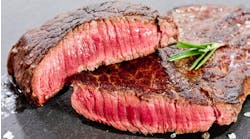According to a recent analysis of government data, children who drank 100 percent juice had healthier overall diets than non-juice consumers and consumed more total fruits, fiber and key nutrients such as vitamin C, potassium, magnesium and folate. The juice consumers also had significantly lower intakes of total fat, saturated fat and sodium. According to the researchers, the group of 100 percent juice consumers also had equal or lower bodyweights and body mass indexes (BMI) than the non-juice consumers, adding to the scientific evidence which shows that 100 percent juices play a role in a healthful diet and are not associated with overweight. The research was presented in early April at the Experimental Biology 2006 meeting in San Francisco.
Using well-established data from the government's National Health and Nutrition Examination Survey (NHANES), researcher Victor Fulgoni, Ph.D., examined the impact of 100 percent juice in children's diets on bodyweight and BMI among more than 7,500 children ages 2-18. This analysis of the most recent NHANES database (1999-2002), combined with growth chart data from the Centers for Disease Control and Promotion (CDC), found that juice consumers had significantly lower z-scores for body mass index (BMI) for their age than non-juice consumers (body mass index is a relative measure taking into consideration body weight and body size and z-scores represent the distance from the mean or average of the total population studied). While there were no differences specifically in BMI between the juice consumers and non-juice consumers for children aged 2-11, there were differences in children aged 12-18 years the juice consumers had significantly lower BMIs than those who drank no juice at all.
According to Fulgoni, "These findings are consistent with many other research studies that have found no association between consumption of 100 percent juice and obesity."
The government data analysis also demonstrates that children who drank 100 percent juice had a total fruit intake that was three times higher than non-juice consumers. These research findings are supportive of statements made in the 2005 Dietary Guidelines Advisory Committee report (Appendix G; Fruit and Fruit Juice Analysis), which states that fruit juices provide higher, more substantial contributions of several vitamins and minerals than whole fruit. With the exception of fiber, these include vitamin C, potassium, folate and magnesium.
The research was funded by the Washington, D.C.-based Juice Products Association (JPA). For more information about the role 100 percent juices can play in the diet, visit JPAs newly launched website www.fruitjuicefacts.org. General information about JPA can be found at www.juiceproducts.org.
Experimental Biology is a multi-society, interdisciplinary, scientific meeting attended by 12,000 independent scientists and sponsored by the Federation of American Societies for Experimental Biology (FASEB). The abstract of Dr. Fulgoni's research, "Consumption of 100 percent juices is not associated with being overweight or risk for being overweight in children," has been published in a special issue of the March FASEB Journal and can be viewed at: www.eb2006-online.com/.

